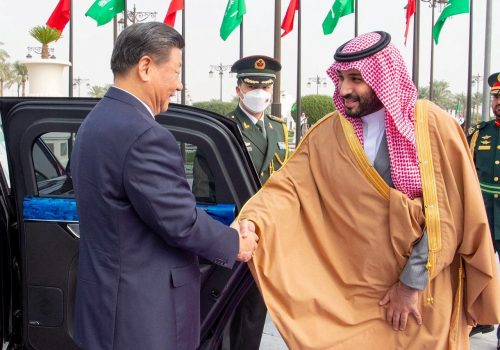
GCC-China free trade negotiations are stalling over Saudi industrial agenda, according to sources
The Arab group and China are in the midst of negotiating a free trade agreement, but the talks have stalled because Saudi Arabia is worried that low-cost Chinese imports could jeopardize its plans to become a global manufacturing powerhouse.
Over the past two years, Saudi Arabia has supported new attempts by the Gulf Cooperation Council (GCC), an Arab bloc that includes the kingdom, the United Arab Emirates, and Qatar, among others, to finally conclude a long-awaited agreement with China.
However, five people with knowledge of the talks said that the parties were deadlocked by Saudi objections to a list of products that Beijing has proposed be free from import taxes in the Gulf.
According to the sources, Saudi Arabia is concerned that a surge of less expensive Chinese copies of goods that it intends to produce domestically will harm its industrial ambition.
Requests for comment on the trade negotiations from Reuters were not answered by China’s commerce ministry, the GCC Secretariat, or the government communication office of Saudi Arabia.
As part of a larger economic transformation plan to create a thriving private sector, the government of the kingdom, the largest oil exporter in the world, believes that the country’s developing industrial sector would one day produce everything from computer chips to tires.
Saudi Arabia is investing trillions of dollars in economic development as part of the Vision 2030 program, which is led by Crown Prince Mohammed bin Salman, the de facto ruler of the nation.
Prince Mohammed wants Saudi Arabia to become a significant worldwide commercial hub in addition to reducing its reliance on oil rents by building a robust private sector.
Even in the absence of competition from lower-priced Chinese goods, the industrial portion of that transformation plan confronts difficulties. This involves locating skilled labor among its inhabitants in a nation where Saudi nationals make up roughly 60% of the 32 million people living there.
Saudi Arabia is collaborating with international companies, particularly those in China, to establish local production lines and capabilities within the kingdom in order to establish its own manufacturing sector.
According to the sources, a trade agreement between China and the Gulf countries was not out of the question, but it would probably require a compromise between the Chinese and Saudis before it could be signed.
In October of last year, representatives from the Gulf mentioned quickly coming to an agreement. In January, local media cited China’s ambassador to Saudi Arabia, Chen Weiqing, as stating that while there had been progress, there were still challenging issues that needed to be resolved.
Trade negotiations between China and the GCC—which also includes Oman, Kuwait, and Bahrain—began nearly two decades ago. However, very few agreements have been signed by the loosely formed Arab political and economic group. In December, it and South Korea inked a free trade deal.
China is a major consumer of Gulf energy, and according to Chinese customs data, bilateral commerce between the two regions reached $286.9 billion in 2023. Nearly 40% of this trade was with Saudi Arabia.
The United governments, which has long been the main security ally of the Gulf Arab governments, is concerned by China’s recent expansion of economic engagement with the Gulf states.
With the goal of creating a rift between China and the Gulf states, American authorities have been giving ultimatums that force them to choose between Chinese and American technologies.
All Categories
Recent Posts
Tags
+13162306000
zoneyetu@yahoo.com



